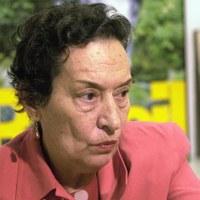Anadia (Portugal), 1930
By Equipo Latinoamericana
Graduating in mathematics from the University of Lisbon in 1953, Maria da Conceição de Almeida Tavares migrated to Brazil in 1954 to escape the repression of the Portuguese fascist regime. During the government of Juscelino Kubitschek, she applied for Brazilian nationality and enrolled in the economics course at the Federal University of Rio de Janeiro (UFRJ), where she graduated in 1960. She taught several generations of economists at the current Institute of Economics at UFRJ and at the Institute of Economics at the University of Campinas (Unicamp).
Maria da Conceição was one of the founders of graduate studies in economics in Brazil. She conducted research at institutions such as the National Bank for Economic and Social Development (BNDES) and the Economic Commission for Latin America and the Caribbean (CEPAL). Her work was greatly influenced by prominent economists from CEPAL and BNDES, such as Raúl Prebisch, Celso Furtado, and Aníbal Pinto. Her writings demonstrate a constant concern for thinking about Latin America.
One of Maria da Conceição’s most important essays, “The Rise and Decline of the Import Substitution Process,” published in 1972, marked a turning point in the study of Brazil’s industrialization process and became a classic in specialized literature. Her books and dozens of articles on the Brazilian economy have made her one of the leading scholars on national development and are essential reading for researchers of the Brazilian economy.
Her activism in defense of democracy and against the economic policies of the Brazilian military dictatorship led Maria da Conceição to go into exile in Chile. Upon her return, she became involved with the Brazilian Democratic Movement, the predecessor of the Brazilian Democratic Movement Party (PMDB). Her academic prestige contributed to her election to the Federal Chamber of Deputies, representing the Workers’ Party (PT) of Rio de Janeiro in 1994. In Parliament, during the 1995 to 1999 legislative term, she stood out as a critic of the economic policies implemented by the government of Fernando Henrique Cardoso, drawing the attention of her parliamentary colleagues to the risks of the exchange rate policy and the destruction of national public assets.
Among her main books are: From Import Substitution to Financial Capitalism (1972), Capital Accumulation and Industrialization in Brazil (1986), The Political Economy of the Crisis (1982), (Dis)Global Adjustment and Conservative Modernization, co-authored with José Luís Fiori (1993), and Power and Money, also co-authored with José Luís Fiori (1997).



